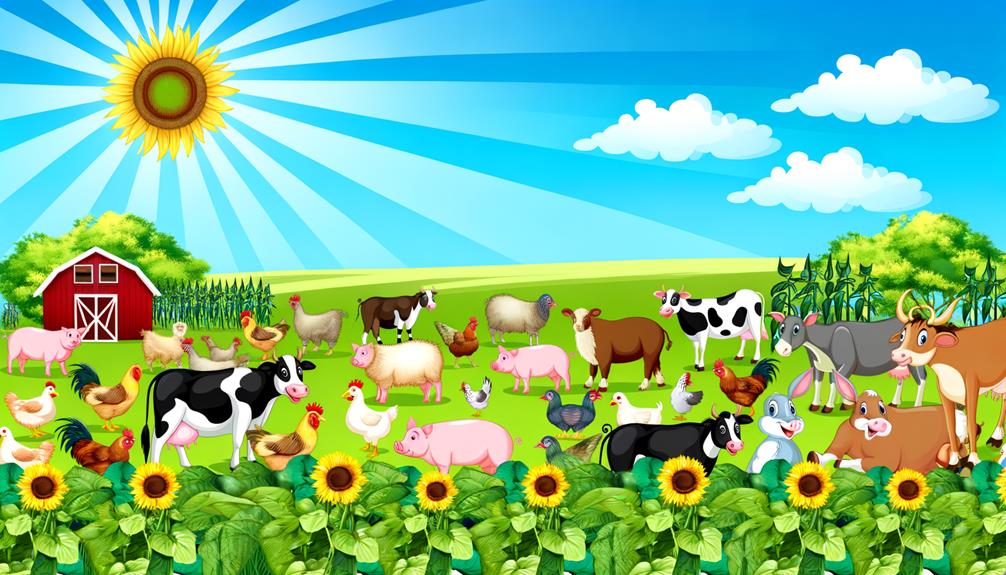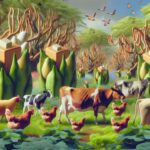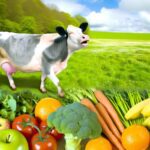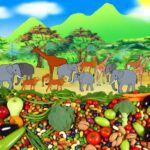Imagine the gentle eyes of a calf looking through the bars of a confining crate, a world away from the lush fields it might have roamed. You’re likely aware that veganism is not just a dietary choice but a stance against such animal suffering. By forgoing meat, dairy, and eggs, you don’t just change your menu; you become a part of a movement that rejects the industrial practices causing harm to countless creatures. As a compassionate and culturally aware individual, you recognize that your food choices can be a powerful statement against cruelty. This exploration will guide you through the harsh realities of animal agriculture and illuminate how embracing a vegan lifestyle contributes to a more humane world. You’ll uncover the ethical, environmental, and social implications of veganism, understanding that each plant-based meal is a step towards a kinder future. So, let’s consider together how your choices at the dinner table can echo in the lives of animals far from your plate, and what awaits as we consider the broader impact of a vegan lifestyle.
Key Takeaways
- Veganism reduces the demand for animal products, leading to fewer animals being bred and suffering in factory farming and the dairy/egg industry.
- Transitioning to a vegan diet helps prevent cruel practices such as forced overproduction of eggs and the killing of male chicks.
- Veganism promotes higher welfare standards by advocating for better veterinary care and animal welfare.
- Supporting veganism and participating in animal rights activism contributes to a cultural shift towards kindness and respect for animals.
Defining Animal Suffering
Animal suffering, an undeniable consequence of certain human practices, encompasses the physical and emotional distress experienced by animals in situations such as factory farming and wildlife control. You must recognize that animals are often subjected to harsh conditions on factory farms, where they’re crammed into confined spaces that deny their natural behaviors. Animals suffer in these environments, lacking sunlight and living amidst rampant disease. Chickens, particularly egg-laying hens, are forced to lay an unnatural number of eggs, leading to broken bones and other health issues.
Understanding animal rights issues is crucial; animals are capable of experiencing pain, both physically and emotionally. In industrial farming, newborn calves are separated from their mothers, causing profound distress. Animal welfare isn’t just about avoiding the use of products derived from animals; it’s also about acknowledging the cruelty inherent in practices like de-beaking and the unnecessary killing of male chicks considered useless by the egg industry.
Education and compassion dictate that you recognize these practices not only harm animals but also contribute significantly to climate change. By choosing veganism, you play a part in reducing CO2 emissions and, more importantly, in lessening the suffering of sentient beings who rely on your voice and choices for a kinder world.
Veganism’s Impact on Livestock
By choosing a vegan lifestyle, you directly contribute to the reduction of livestock suffering in factory farms. Your decision to adopt a plant-based diet means you’re no longer supporting the meat industry, which often denies farm animals the basic tenets of animal welfare. The use of animal products is at the heart of animal agriculture, and by opting out, you’re advocating for a world where reducing animal suffering is a priority.
Here’s a glimpse of the impact you make by being vegan:
| Factory Farming Practices | Veganism’s Impact |
|---|---|
| Overcrowded conditions | Fewer animals bred for suffering |
| Forced overproduction of eggs | Reduced demand for inhumane practices |
| Separation of dairy calves | Lessens emotional distress in cattle |
| Annual killing of male chicks | Saves millions of lives |
| Unsanitary living spaces | Promotes higher welfare standards |
Your compassionate choice supports a cultural shift towards recognizing the rights and needs of livestock. It’s not only a personal health choice but an ethical stance, showing deep respect for all living beings. By serving others, including animals, through informed choices, you become an integral part of the solution to end the cruelty inherent in factory farming.
Wildlife and Habitat Preservation
Often overlooked, your choice to embrace veganism also plays a significant role in safeguarding natural habitats and preserving the diverse species that rely on them. When you forgo meat consumption in favor of plant foods, you’re contributing to habitat preservation. The stark reality is that animal agriculture is a leading cause of deforestation, forcing wild animals from their homes, and threatening endangered species with extinction. By eating meat, you indirectly support these environmentally damaging practices.
Switching to a vegan diet means you’re advocating for the environmental benefits that come with reduced land use and less strain on resources. It’s not just about the animals raised for food; it’s about the entire ecosystem. Your plant-based choices help in combating climate change, a threat that looms over all life on Earth, including humans. Moreover, the environmental impact of veganism extends to mitigating water pollution, another consequence of intensive meat production.
Every meal you choose has a ripple effect on the planet. By choosing veganism, you’re not only reducing animal suffering but also becoming a guardian of nature. You’re part of a compassionate community that values life in all its forms and works towards a future where humans live in harmony with the earth’s precious and diverse wildlife.
Dairy and Egg Industry Realities
When you consume dairy and eggs, you may unknowingly support industries that routinely inflict harm and distress on countless animals. The dairy and egg industry realities are often concealed from consumers, but understanding them can be pivotal for those considering the impact of their diet on animal welfare.
By adopting a vegan lifestyle and eliminating dairy and egg products from your diet, you contribute to lessening the demand for practices that compromise the well-being of animals. To give you a clearer picture of what happens behind the barn doors, consider these points:
- Forced Separation: Dairy cows are removed from their calves shortly after birth, causing psychological stress.
- Confinement and Cruelty: Egg-laying hens endure life in cramped cages and painful procedures like de-beaking.
- High Mortality: The male chicks, having no value for egg production, are killed in large numbers through inhumane methods.
These practices not only affect animals but also have larger environmental and health implications. For instance, the shift towards plant-based diets is associated with lower risks of heart disease. By informing yourself and making compassionate choices, you can play a significant role in promoting a kinder, healthier world for all beings.
Advancing Animal Rights Activism
Understanding the harsh realities of the dairy and egg industries may propel you to join forces with animal rights activists, who are tirelessly working to mitigate animal suffering through the promotion of veganism. As you become aware of the plight of animals in these sectors, you’ll find that transitioning to a vegan diet is a powerful first step towards reducing demand for products that contribute to their mistreatment.
By choosing plant-based alternatives, you’re not only advocating for better veterinary care and animal welfare but also supporting a growing movement. An increasing number of individuals, much like yourself, are advancing animal rights activism by educating others, participating in campaigns, and aligning their dietary choices with their ethical values.
Veganism and Animal Rights go hand in hand, et al., in the shared mission to end animal exploitation. When animals would otherwise live in confined, cruel conditions, each vegan meal you choose helps to prevent their suffering. You become part of a compassionate community dedicated to creating a world where kindness rules over cruelty.
Your involvement in animal rights activism paves the way for a future where animals are respected, and the principles of Veganism are embraced. You’re not just serving yourself; you’re serving a cause much greater – the well-being of all living beings.
Frequently Asked Questions
How Does Veganism Reduce Deforestation?
You’re saving forests while dining on legumes; veganism curbs deforestation by promoting sustainable farming and crop alternatives, protecting biodiversity, and enhancing soil health, water conservation, and ecosystem services for climate resilience and Indigenous rights.
What Would Happen to the Animals if the World Went Vegan?
If the world embraced veganism, you’d see a livestock transition addressing animal surplus, ethical dilemmas ease, wildlife resurgence, and habitat rehabilitation. There’d be economic effects, farming shifts, dietary changes, and a cultural impact.
How Veganism Can Save the Environment?
By embracing veganism, you’ll reduce your carbon footprint and methane emissions, support sustainable farming, and aid in water conservation, soil regeneration, and ocean protection, ultimately preserving biodiversity and lessening greenhouse gases.







